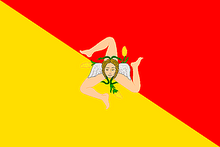Good Friday Meditation 2007: Redeemer Presbyterian Church
Every Good Friday at Redeemer Presbyterian Church in NYC, we host four services where we reflect on the death of Jesus Christ with four readings and three meditations--each meditation given by a member of the pastoral staff. In years past, these meditation sought to answer one of the following questions: (1) Why did He come? (2) Who was He? (3) What did He do? This year, however, we changed the format to "Jesus: Our Prophet, Priest and King." The passage that we have chosen to highlight the three offices of Jesus Christ is, Luke 19:37-48 (and then a final reading of Luke 23:44-49 without a reflection, leaving the congregation to reflect of Jesus' death). My meditation is on Luke 19:37-40 and is entitled, "Jesus Our King."
37When he came near the place where the road goes down the Mount of Olives…the whole crowd of disciples…began joyfully…to praise God in loud voices for all the miracles they had seen:
38”Blessed is the king who comes in the name of the Lord!”
“Peace in heaven and glory in the highest!”
39Some of the Pharisees in the crowd said to Jesus, “Teacher, rebuke your disciples!”
40 “I tell you,” he replied, “if they keep quiet, the stones will cry out.”
In the ancient world, especially in Rome, when a king was about to enter the imperial city, the citizens beneath his rule, would have rushed out to meet his procession. This means that thousands of people would gather to celebrate the homecoming of their king. And as the king’s procession would draw near the imperial city, the celebration, well, the celebration would grow more and more intense: The cheers would become thunderous; the hands of all the people would be raised in the air; and all those who were present would praise the coming of their king. Yet interestingly, you didn’t have to like the king, or agree with the king to be there to greet him--since not showing up to greet him would demonstrate a great disrespect for the king
There’s a great picture of this in the movie The Gladiator. When Commodus the king--the king that no one cared for and the king that no one respected—well, when he entered the imperial city, thousands of people still turned out to greet him, whether they loved him or not. And I think that’s something like the picture that Luke has painted for us in this passage.
You see, as Jesus entered the holy city, he was met by cheering crowds who recognized him as the coming King. But he was also met by those who weren’t too happy that the celebration was taking place.
Now, if you’re anything like me, when you heard the answer that Jesus gave the Pharisees (those people in the narrative who were less than celebratory and the people who wanted to see the celebration come to an end) well, Jesus’ answer probably through you for a loop. I mean, it probably made you scratch your head and ask yourself, “What do crying stones or shouting rocks have to do with Jesus being the King? Quite honestly, EVERYTHING!
You see, ever since the beginning of time, the world, the cosmos, the universe, recognized its Creator-King. But what’s more, the cosmos always knew, and had little doubt, that there would come a day, a day that would be unlike any other day: The day that all things would be renewed. And that day would be the same day that the universe’s King would take his throne.
You see, today we’re here to celebrate the enthronement of the King. Except this King’s crown would be made of thorns; and this King’s throne, would be nailed to him, and he would hang on it for six long hours. And at the very last moment of this King’s life, the rocks would indeed cry out.
Now, Matthew tells us about that moment at the end of his Gospel where we read this: “And when Jesus had cried out again in a loud voice, he gave up his spirit. And at that moment the curtain of the temple was torn in two from top to bottom. And the earth shook and the rocks split.
You see, at the very moment when the King of the Universe breathed his last breath, the universe, the cosmos, the created realm screamed at the top of its lungs when the earth shook and the rocks split.
Yet somehow I don’t think that those screams were wales of mourning. Instead, I believe that they were the first shouts of joy, the first celebratory cries, as the universe began to realize--at that very moment--that everything was beginning to be set free from its bondage to decay! Amen.
[The artwork on the top left hand corner of the post was used on Redeemer's bulletin for the service. It is entitled, Tetelestai! (It Is Finished!): Charcoal on paper, 2005 (36" x 24"). The artist is my father, Paul Buccheri. It was his gift to me for my ordination and it hangs on my living room wall. My father told me that when he was working on the piece, he kept Isaiah 53:2 in the front of his mind: "He had no beauty or majesty to attract us to him, nothing in his appearance that we should desire him." Yet interestingly, the piece is a loose self-portrait of my father, which in turn, makes it theologically profound: that when Jesus died, so died my father.]
Friday, April 06, 2007
Subscribe to:
Post Comments (Atom)




1 comment:
Speaking of gladiators. I read a commenatary that said gladiators would cry out "tetelestai" when they finished off their opponents.
Jesus cast out satan from his throne of death. The victory cry was that of our conquering king.
Now on the Judgment Day Satan can no longer hold believers in the Land of Death.
Post a Comment